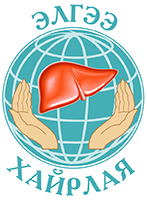Community Awareness
The first step to ending any epidemic or issue is creating awareness of the problem among the general population. The next step is to provide education on actions for instigating change. Community awareness is crucial. It empowers individuals to actively participate in addressing local issues, fosters a sense of belonging, and promotes positive change by informing residents about important information like available services, potential risks, and opportunities to contribute, ultimately creating a stronger and more cohesive community. With a 98% literacy rate and community-minded culture, community-based education is highly effective in improving knowledge and awareness in Mongolia.
Most of FIRE’s current awareness activities are centered around Hepatitis Free Mongolia and include conducting media events, including TV and radio programs and press conferences; distributing information and communication materials; and organizing events in local communities’ gathering centers.
Community Awareness Events are conducted to support various activities, including Hepatitis Free Mongolia and World Hepatitis Day. In addition to the community awareness fair, we spend time at local markets, in schools, local businesses and other locations, distributing thousands of pieces of information and promoting awareness.
- Awareness Materials: We have created a 20-page booklet with detailed information about all aspects of liver disease and liver health and posters for display at health clinics and other community businesses.
- Distribution of IEC Materials: In addition to other events and activities, the initial distribution of IEC materials targets clinics, hospitals, government offices and libraries, businesses, community centers, and other gathering spots around the province.
- Direct Community Outreach: Hepatitis Coordinators reach out to community members to share information and increase participation in screening and treatment. They connect to community members through:
-
- Small community gatherings and outreach at local community centers, schools, and businesses
- Travel to visit remote families with the bag governor on his annual rounds
- Visiting markets and other gathering spots
- Community Awareness Fair and Opening Ceremony: In collaboration with the local health department, local organizations, and private entities, we conduct a community awareness fair and opening ceremony in the province center at the start of the first screening to generate interest, gain support, and enlist community leaders. It includes entertainment and family-oriented activities for all ages. We educate community members by distributing pamphlets, posters, videos, information booths, and speakers. Some information booths include doctors, informational handouts and displays, and interactive games.
Long-term, life-saving changes can only be achieved through sustainable, inter-sector cooperation, and support from a community’s government and business leaders. Through strategic advocacy meetings and targeted information sessions, FIRE informs community leaders and policymakers about the nation’s viral hepatitis and liver cancer epidemics. Through these strategic advocacy meetings and targeted information sessions, we provide solutions to bring the community’s logistics and financial influences together to implement further solution-based programming. Participants are selected with the support of the local health department.
From 2010 to 2018, FIRE worked with the World Health Organization (WHO), the Mongolian Ministry of Health (MoH), and rural healthcare providers and departments to mark World Hepatitis Day on July 28 in Ulaanbaatar and rural areas of Mongolia. In 2015, 2016, and 2017, FIRE received grants from the World Health Organization (WHO), Western Pacific Region Office (WPRO) for our World Hepatitis Day activities. We celebrated the day with a public service announcement (PSA), which was shared on internal media systems in all hospitals in Ulaanbaatar and on local TV stations. We also distributed posters around Ulaanbaatar to all clinics and hospitals and conducted community awareness fairs and advocacy activities for community leaders.


















